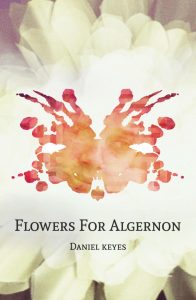
 Literature Guides
Literature Guides
Flowers for Algernon Study Guide
Introduction
Flowers for Algernon is an award winning science-fiction novel written by Daniel Keyes in 1966 and is a form of social criticism influenced by Freud’s theory of Psychoanalysis which was prevailing at the time. Keyes’ novel is among the 100 most challenged books and it’s been banned in many libraries numerous times for its explicit sexual content.
The novel is set in New York and Chicago, most probably in the 1960s and is structured in a form of journal entries written from the viewpoint of Charlie Gordon, a 32 year old man with an IQ of 68 who works as a janitor in a bakery. Charlie studies in a school for the mentally challenged and becomes the first human candidate for an experiment that could increase his mental capacity and intelligence. The operation has only been performed on a mouse named Algernon.
As Charlie rapidly increases his intelligence in a matter of months, he comes to experience the harsh truth that ignorance is bliss. Charlie becomes aware and analytical of people’s behavior towards him and discovers that those he calls his friends are actually his enemies. Charlie’s intelligence challenges that of his creators Strauss and Nemur and he becomes as arrogant as they are, if not worse.
Charlie’s increased intelligence brings back unpleasant childhood memories and brings forward a complexity in his personality. Charlie although is mentally intelligent is still emotionally and sexually ignorant. His regressed emotional state and his increasing arrogance lead him to be alienated by all who know him.
The story ends in a tragedy as Algernon’s mental regression foreshadows that of Charlie’s and in spite of all his efforts to retain his gift, he loses it but not before his closure and brief reunion with his family. In the end Charlie refuses to accept people’s pity as he regresses and admits himself into a home for the mentally disabled.



